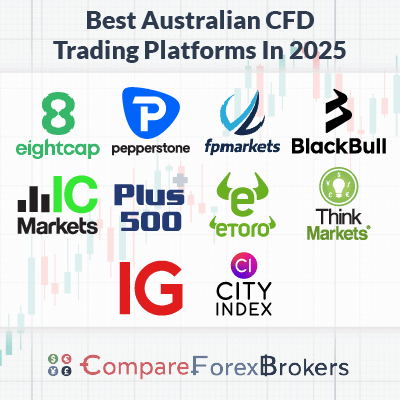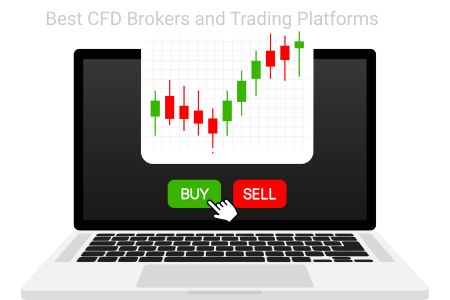
Choosing the best stock CFD broker is crucial for any trader looking to maximize their potential in the stock market. With numerous brokers available in the market, each offering a myriad of services, it becomes imperative to understand their differences and what makes one broker stand out from the others. When assessing a broker, traders should consider several key factors, including the range of stocks available, trading fees, user experience, and customer support. Furthermore, for those new to trading, it may be helpful to refer to lists of best stock cfd broker top CFD brokers to make a more informed decision.
Understanding CFDs and Their Advantages
Contracts for Difference (CFDs) allow traders to speculate on the rise or fall of asset prices, without actually owning the underlying asset. This provides several advantages:
- Leverage: CFDs often allow for trading on margin, meaning traders can control a larger position with a smaller amount of capital.
- Diverse Market Access: Traders can access various markets, including commodities, indices, forex, and stocks all from a single platform.
- Short Selling: With CFDs, traders can profit from both rising and falling markets, making them suitable for various market conditions.
- No Ownership Required: Traders do not have to manage the physical ownership of securities, simplifying the trading process.

Criteria for Selecting the Best Stock CFD Broker
When searching for the best stock CFD broker, consider the following factors to ensure that you choose one that aligns with your trading style and needs:
1. Regulation and Trustworthiness
The first step in evaluating a broker is to check if it is regulated by a recognized authority. Regulated brokers must adhere to strict financial standards, which adds an extra layer of protection for traders. Common regulatory bodies include the Financial Conduct Authority (FCA) in the UK, the Cyprus Securities and Exchange Commission (CySEC), and the Securities and Exchange Commission (SEC) in the US. Working with a regulated broker ensures that your funds are safe and that the broker operates transparently.
2. Trading Fees and Costs
All brokers charge fees, but these can vary widely between them. Look for a broker that offers competitive spreads, low commissions, and no hidden fees. Understanding the fee structure is essential, as it can significantly impact profitability. Some brokers may offer zero-commission trading for specific stocks or promotional periods, which could be beneficial for traders.
3. Trading Platform
The trading platform is the primary interface through which traders execute their strategies. A good trading platform should be user-friendly, reliable, and equipped with informative tools such as technical analysis, charting capabilities, and real-time market data. Mobile access is also essential for traders who wish to manage their portfolios on the go. Many brokers offer demo accounts, allowing you to test the platform before committing real money.
4. Range of Available Stocks

A broker that offers a wide selection of stocks can provide additional opportunities for diversification. Look for brokers that offer stocks from various industries and countries to broaden your horizons. Additionally, check if they provide access to other assets, such as ETFs or cryptocurrencies, for more trading opportunities.
5. Customer Support
Excellent customer service is vital, especially for new traders who may require support during their trading journey. Check for the availability of multiple support channels, such as live chat, email, and telephone, and whether they offer assistance in your language of preference. Reliable customer support can significantly enhance your trading experience.
Top Features to Look For
In addition to the basic criteria listed above, traders should also be on the lookout for specific features that enhance the trading experience:
1. Educational Resources
Many brokers provide educational materials, including webinars, tutorials, and market analysis. These resources can be beneficial for novice traders looking to increase their knowledge. A broker that emphasizes education demonstrates a commitment to helping its clients succeed.
2. Trading Tools and Technology
Advanced trading tools, such as algorithmic trading options or advanced charting features, can give traders a competitive edge. Ensure that your broker provides the necessary tools to implement your trading strategies effectively.
3. Promotions and Bonuses
Many brokers incentive traders through bonuses or promotions. While these can be attractive, always read the terms and conditions associated with them, as they can sometimes come with strings attached.
4. Community and Social Trading Options
Some brokers also provide community features, allowing traders to connect, share strategies, and even copy each other’s trades. If you are interested in social trading or sharing insights, look for a broker that offers these functionalities.
Conclusion
Finding the best stock CFD broker requires careful consideration of various factors. Regulation, trading costs, platform quality, and support are critical to ensuring a smooth and profitable trading experience. Do thorough research and consider exploring reviews and rankings of top CFD brokers to assist in your decision-making process. By taking the time to choose wisely, you’ll be well on your way to achieving your trading goals.

